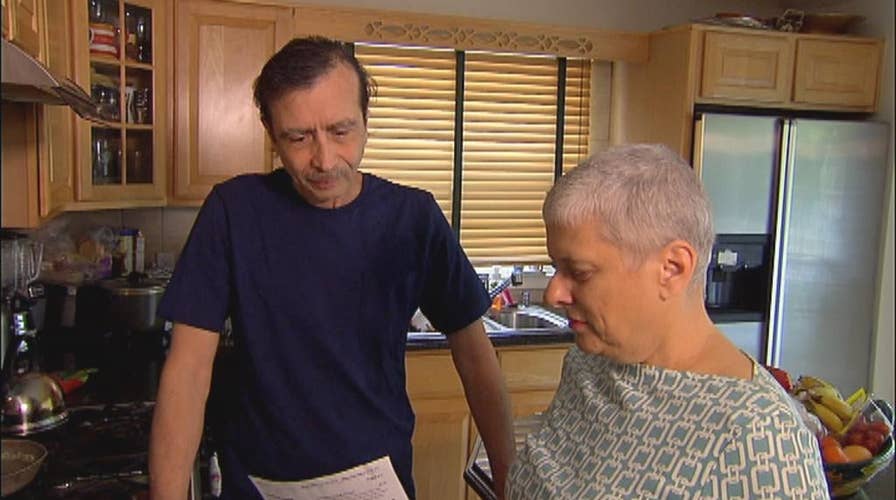Pink Fund helps breast cancer patients pay their bills
In 2017, between 20 and 30 percent of women diagnosed with breast cancer will lose their jobs. The Pink Fund helps women pay their bills so they can just focus on getting better
Adapted from The Ultimate Guide to Breast Cancer
The truth is that no one really knows definitively what causes breast cancer—or, for that matter, any type of cancer.
Scientists and researchers are trying to understand the reasons why breast cancer cases occur. Here's a look at some risk factors:
1. Sex
Sixty percent of women who develop breast cancer don't have a major risk factor other than being a woman. Men can develop breast cancer, but it's about 100 times less common in men: Just 2,240 American men were diagnosed with the disease in 2013.
BREAST CANCER AWARENESS MONTH: STAGES AND SURVIVAL RATES
2. Age
The older you are, the higher your risk. Eighty percent of new cancers are diagnosed in people over 55, more than half of new breast cancers occur in women over 60, and more than one-third occur in women over 75. Also, breast cancer is more common later in life—after menopause—in Europe and the United States than in other parts of the world, such as Japan or Africa, but scientists haven't figured out why.
3. Race and ethnicity
According to the American Cancer Society, white women are slightly more likely to develop breast cancer than African American women, but African American women are more likely to die of this cancer. But in women under 45, breast cancer is more common in African Americans. Asian, Hispanic, and Native American women all have a lower risk of developing and dying from breast cancer.
4. Exposure to hormones
If you got your period early in life—also called early menarche—and/or went into menopause late, you've been exposed to the female reproductive hormones estrogen and progesterone for a long time. (These hormones are what regulate your periods.) This long-term exposure puts you at higher risk of breast cancer. According to the American Cancer Society, studies have found that women using oral contraceptives (birth control pills) have a slightly greater risk of breast cancer than women who have never used them, though the Pill has been shown to reduce risk of endometrial and ovarian cancers.
BREAST CANCER SURVIVORS SHARE THEIR ADVICE
5. Genetics
In the early 1990s, scientists discovered a genetic disposition to breast cancer in mutations of the genes BRCA1 and BRCA2 (named for BReast CAncer). For a woman with a first-degree relative who's had breast cancer, getting tested can provide a measure of relief from anxiety, and a more informed sense of the risks for you or your children. Still, the genetic causes of breast cancer are largely a mystery. Only about 40 percent of hereditary breast cancer is linked to these two genes, and only 5 to 10 percent of breast cancers are hereditary.
6. Exposure to carcinogens
No matter what you read—or what anyone else tells you—some environmental risk factors do seem to exist. In fact, so-called endocrine-disrupting chemicals and carcinogens (which may increase breast cancer risk) are present in many working environments. For example, one study found that women who worked in certain jobs, such as plastics manufacturing and food canning, had more than twice the risk of developing premenopausal breast cancer compared to women who did not work in these environments.
7. Diet
Studies are conflicting as to whether eating certain foods can increase or decrease your breast cancer risk. But what has been proven: High-fat diets can not only wreck your brain, but they can lead to being overweight or obese, which is a breast cancer risk factor.
8. Alcohol intake
When it comes to alcohol, those who have two to five drinks daily have about one-and-a-half times the risk of women who don't drink.
KEY BREAST CANCER TERMS YOU SHOULD KNOW
9. Obesity
Fat cells make estrogen. And when breast cells are exposed to extra estrogen over time, the risk of developing breast cancer is higher. One 2006 study found that women who gained about 55 pounds or more after the age of 18 had a 45 percent increased risk of developing breast cancer compared with those who maintained their weight. Gaining weight after menopause can also increase a woman's risk. That same study found that putting on 22 pounds after menopause increased the risk of developing breast cancer by 18 percent.
10. Lack of exercise
Exercise is key to preventing breast cancer because it controls blood sugar and limits blood levels of something called insulin growth factor, a hormone that can affect how breast cells grow and behave. Exercising also helps you maintain a healthy weight.
This article first appeared in Rodale Wellness.









































